Economy
Minimum Wage: Buhari, Govs May Clash as FG Sets up Advisory Panel
Published
6 years agoon

- Minimum Wage: Buhari, Govs May Clash as FG Sets up Advisory Panel
Indications emerged in Abuja on Wednesday that President Muhammadu Buhari might clash with governors if he presented a bill to the National Assembly, proposing N30,000 as the national minimum wage without considering the states’ ability to pay.
Buhari had while inaugurating a Technical Advisory Committee on National Minimum Wage in Abuja on Wednesday said there would be negotiations with workers already earning above N30,000 to help the Federal Government and the states to implement a new wage increase smoothly.
A new proposal of N30,000 is now before the President, which will be forwarded to the National Assembly on January 23 as a bill.
But the governors said they had already told the President the financial crisis the proposed N30,000 minimum wage would bring to their states if approved.
A governor, who spoke on condition of anonymity, told one of our correspondents that the Nigeria Governors’ Forum, as a body, had sent to the President financial analysis of how the increment would affect 30 states.
It was gathered that the governors had earlier submitted a report carried out on six states to measure the impact of the increase in minimum wage from N18,000 to either N22,500, N24,000 or N30,000 on states’ finances.
The governor listed states that were covered in the first report to include “Kebbi, Ondo, Edo, Ebonyi, Bauchi and Plateau.”
It was gathered that some states had agreed to pay more than N30,000 but the governors were said to have collectively said the minimum wage should be pegged at N22,500 in order to help some states that were not financially viable.
Such states, it was gathered, included Kogi, Osun and Benue.
It was gathered that Jigawa State even offered to pay as much as N44,000 if the minimum wage was left at N22,500.
The governor, who spoke on condition of anonymity, added, “So, what we did was to help states that can’t pay N18,000 now to struggle and pay the N22,500 while those paying now should be able to manage the increment without much problems.
“Now, if the President goes ahead to send a bill that will contain N30,000 to the National Assembly without considering what we have told him, there will be crisis in the country. We will wait to see what will happen. I’m sure that the National Assembly will not pass the bill this year.
“I’m also sure that the President may still scale down the minimum wage to what we have agreed to pay or the N24,000 that the Federal Government suggested.
“We will expect the President to appeal to the sensibilities of workers on this matter. If you listened to the President in his interview two days ago, he said that it was better to get the N18,000 than not to get at all.
“In the interview, the President also said he was aware that there were states that owe salaries up to six months.”
We’ll negotiate with workers earning above N30,000 – Buhari
However, Buhari stated that for easy implementation, the government would have to negotiate the wage earned by those already taking salaries above the minimum wage home monthly.
Renowned financial and economic expert, Mr Bismarck Rewane, heads the technical committee, which among others, has the primary role of advising the government on how to implement a new minimum wage, particularly the consequential increases for other categories of workers.
However, for the minimum wage paid the least worker, the President disclosed that there was adequate provision for it in the 2019 budget.
Buhari added, “Therefore, we will be able to meet the additional costs that will be incurred in moving up all personnel who are currently earning below the new minimum wage.
“However, we anticipate that after the new minimum wage has been passed into law, we will be going into negotiations for salary review for all the workers who are already earning above the new minimum wage. It is therefore important that we are properly prepared to meet these demands.
“We must therefore look at ways of implementing these consequential wage adjustments in a manner that does not have adverse effects on our national development plans, as laid out in the Economic Recovery and Growth Plan.”
Rewane panel won’t hinder new minimum wage bill timeline –TUC
Also, the National Chairman of the Trade Union Congress in Nigeria, Kaigama Bobboi, on Wednesday said the Rewane panel would not affect the report of the tripartite committee that deliberated on the issue and its implementation.
The TUC chairman said the 30 days the Rewane panel was given to submit its report would not affect the January 23 timeline for the transmission of the bill to the National Assembly or the N30,000 already agreed on as the new national minimum wage.
He also explained that the proposed negotiation by the FG with those who were already earning above N30,000 was procedural as it was done in 2011 when the present minimum wage was negotiated.
Bobboi said, “The Federal Government has captured the projection in the 2019 budget. What the committee is doing is to ensure the source of the fund… The FG has taken a step by including it in its budget… The state governments will need supplementary budget to accommodate it as the case may be. We do not control the NASS but we are in synergy with them and they have promised to expedite action on it. We will not be surprised if this is done within a month.”
Bring bill on Tuesday, Saraki tells Buhari
When contacted, the Senate President, Bukola Saraki, said the National Assembly could pass the wage bill within one week, before going on recess, only if the Presidency sent it to the legislature by Tuesday.
Saraki’s Special Adviser on Media and Publicity, Mr Yusuph Olaniyonu, said, “The Federal Government should not wait until 23rd January before bringing it. They should bring it on the first day of resumption. If they do so, by the 17th or 18th, work will be concluded on it – within the week.
“We are also interested in it because we are labour-friendly and we want the demand of labour to be met very quickly.”
President alone can’t decide percentage of increment – ASCSN
Responding to the Federal Government’s declaration to negotiate with workers earning above N30,000 per month, the Association of Senior Civil Servants of Nigeria said Buhari would not be the only one to determine the percentage of increment in the proposed review of the minimum wage.
The Secretary-General, ASCSN, Alade Lawal, who spoke with one of our correspondents, said, “What the President is saying is that the minimum wage of N30,000 has been agreed. But consequential adjustment has to be negotiated and he is correct.
“We have submitted a memo and we are going to negotiate it and how it is going to affect other workers earning more than the minimum wage.
“That is the salary review aspect of it, and the President cannot just unilaterally decide it. We have to agree, we have to discuss it with the joint negotiating council because our memo is with them already.
“It has to be done sector by sector. We submitted the memo to the Federal Government in respect of the civil service. So, once this N30,000 minimum wage is agreed, they will invite us and negotiation will start.”
Rewane heads advisory panel on minimum wage
Buhari, however, said the technical committee would advise the government on how to implement the increases for other categories of workers already earning above the minimum wage “in a sustained manner.”
The Rewane committee has members knowledgeable in finance, economy and administration from both the public and private sectors.
The President said the terms of reference to the panel included, “To develop and advise government on how to successfully bring about a smooth implementation of impending wage increases.
“Identify new revenue sources, as well as areas of existing expenditure from where some savings could be made in order to fund the wage increases without adversely impacting negatively on the nation’s development goals as set out in the Economic Recovery and Growth Plan.
“Propose a work plan and modalities for the implementation of the salary increases.
“Any other suggestions that will assist in the implementation of this, and future wage increases.
“Given the urgency of this exercise, the committee is expected to complete its deliberations and submit its report and recommendations within one month today.”
Other members from the private sector are a former Chairman of the Federal Inland Revenue Service , Mrs Ifueko Omoigui-Okauru; Sulieman Barry; Dr Ayo Teriba, and Prof. Akpan Ekpo.
There are also the Chairman FIRS, Dr Babatunde Fowler; Director General of Budget Office, Mr Ben Akabueze, who is the secretary of the committee; representative of the Nigeria Governors’ Forum, Chairman of the National Salaries, Incomes and Wages Commission; Richard Egbule and others representing the public sector.
Is the CEO and Founder of Investors King Limited. He is a seasoned foreign exchange research analyst and a published author on Yahoo Finance, Business Insider, Nasdaq, Entrepreneur.com, Investorplace, and other prominent platforms. With over two decades of experience in global financial markets, Olukoya is well-recognized in the industry.

You may like
-
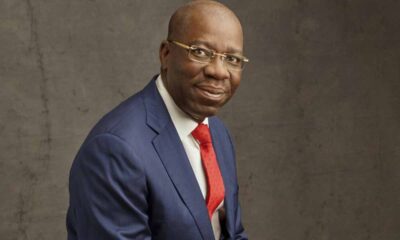

Edo State Governor Godwin Obaseki Raises Minimum Wage to ₦70,000
-


Only 11 Nigerian States Projected to Cover Worker Salaries in 2024
-
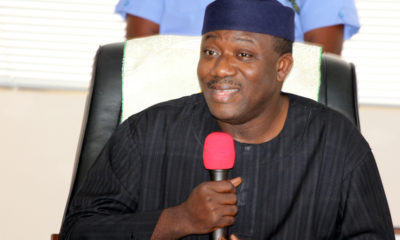

Implementation of Minimum Wage Hinges on States’ Capacity -NGF
-
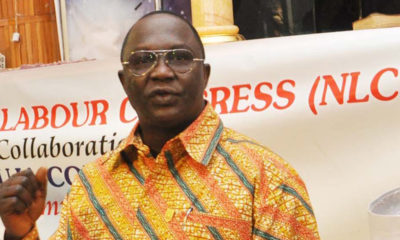

Minimum Wage Should Start From April Says Labour
-
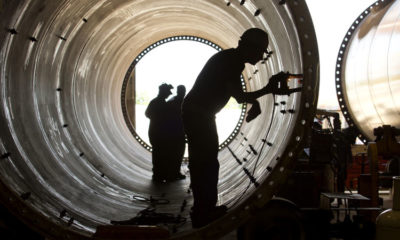

FG, Labour Reach Agreement on Minimum Wage
-
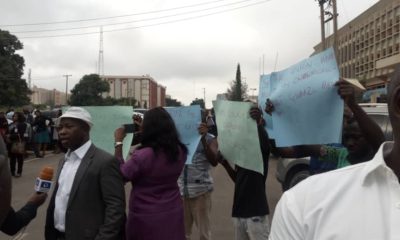

Workers Protest as IGI Sacks Over 60 Staff Without 20-month Pay



